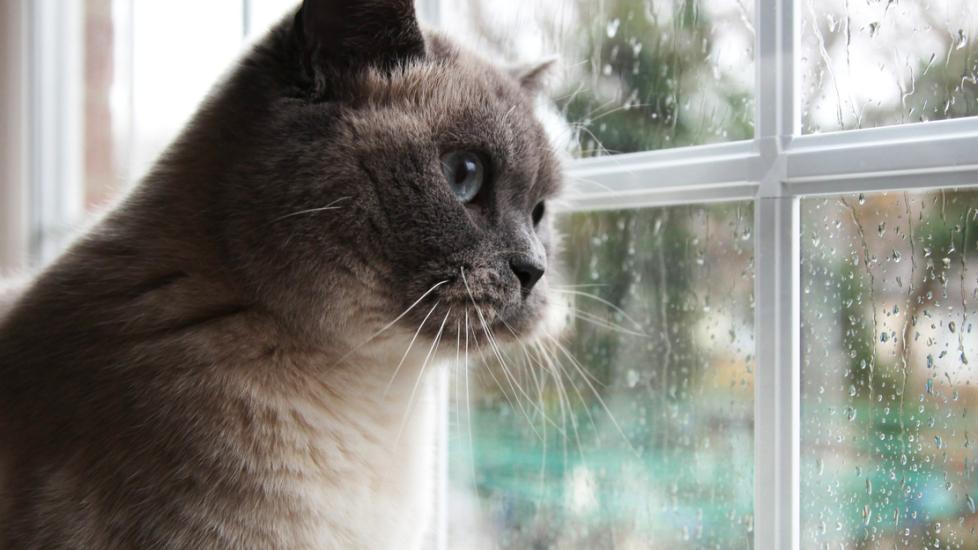Do Cats Know When They Are Dying?
As pet parents, we all know that our pets can sense things. They may know when we are happy or sense when we are sad, and they may even come to us to provide much-needed comfort. Cats are perceptive and seem to understand many unspoken things.
But how well do they understand death—whether it’s a family member or themselves that are near passing?
Can a Cat Sense Death?
Cats do seem to be aware of death, but it is hard to know how much they understand the concept and whether they fully understand the finality of their own passing. They certainly understand when they are feeling ill or that something is different or wrong.
As far as we know, cats do not fear death, though they may wish to be free from pain or discomfort. It is not uncommon for an ill cat or any other predator to hide symptoms of illness, as this may alert other predators that they are ill. As such, it is not unusual for a cat to begin to hide as their time draws near, but this could be a symptom of their worsening illness and not a direct sign that they know the end is coming.
It is thought that animals, and especially cats, can detect by smell the chemical changes that occur in an animal or human body immediately before death. They have also been known to respond to the physical and emotional needs of the animal or person that is passing away.
Certain cats seem to have more of a sense of when other animals or people are nearing the end than others. One cat named Oscar was the subject of several medical journals in the early 2000s. During his time at a rehabilitation and nursing home in Rhode Island, Oscar seemed to “predict” 50 deaths.
Oscar would identify certain patients, and once he curled up with them, they would pass, usually within hours. Not all cats are as sensitive to signs of the end of life, but they all may have some sense of when the end is coming.
How Do Cats Act When They Are Near Death?
Cats, like people, respond differently to illness. Some cats may become reserved and secluded as they become ill, while others will become more affectionate and choose to spend all their time with their loved ones.
It is common for cats to move to a quiet place when they are very close to passing. They may eat less, groom themselves less, and behave differently than normal. Some cats may become irritable and growl or hiss when interacting with other animals or humans. They may also seem anxious or restless.
Many cat parents find it surprising that cats will purr more when they are beginning to pass. This is not something that we truly understand. Most people think of purring as a sign of a happy cat, but purring may be used as a form of communication, a sign of hunger, and even a calming mechanism, which could explain why they may purr during their final days or hours.
If you have a cat who may be approaching the end of life and you notice any changes in behavior, contact your vet or a pet hospice or palliative care team so they can help evaluate your cat’s quality of life. Specific signs to look for include:
-
Grooming less
-
Grouchiness
How to Comfort a Dying Cat
If your pet is showing signs of severe pain or being near the end of their life, the most comforting and humane thing you can do is take your cat to the vet to determine when you need to make the call to let them go.
That may be sooner than you want, and you may want to spend more time with them, but you need to put your cat’s needs and comfort above anything else. Your vet can help you objectively decide what is best, based on your cat’s health and quality of life.
You should not let your pet die slowly at home, as “natural” death does not mean an absence of suffering. Your primary veterinarian and palliative care team have the ability to allow them to pass peacefully and humanely with euthanasia.
After your vet has helped determine the best time and you’ve scheduled an appointment, keeping your cat comfortable during their final time with you is not always easy to do. Give them a comfortable bed in a warm place. Keep your cat in a calm and peaceful environment, free from rambunctious pets, children, or other disruptions.
Your cat may prefer to spend their time quietly curled up alone, or they may prefer to snuggle up close with family. You know your cat best; they may have some other form of comfort they seek.
Most importantly, work with your palliative or hospice care team to ensure that they are kept as pain-free as possible. Euthanasia is a very peaceful and generally pain-free process to allow pets to pass on.
Most pet parents choose to stay with their cat during the process to provide comfort to them. Your veterinarian will work with you to make euthanasia as easy as possible on both you and your beloved cat.
References
-
Szawarski P. Classic cases revisited: Oscar the cat and predicting death. Journal of the Intensive Care Society 2016; 17(4): 341-345.
-
Dickinson G, Hoffmann H. The difference between dead and away: An exploratory study of behavior change during companion animal euthanasia, Journal of Veterinary Behavior, 2016; 15:61-65.
-
Walker J, Waran N, Phillips C. Owners' Perceptions of Their Animal's Behavioural Response to the Loss of an Animal Companion. Animals (Basel). 2016; 6(11):68. November 2016.
Featured Image: iStock.com/Claritoneve
